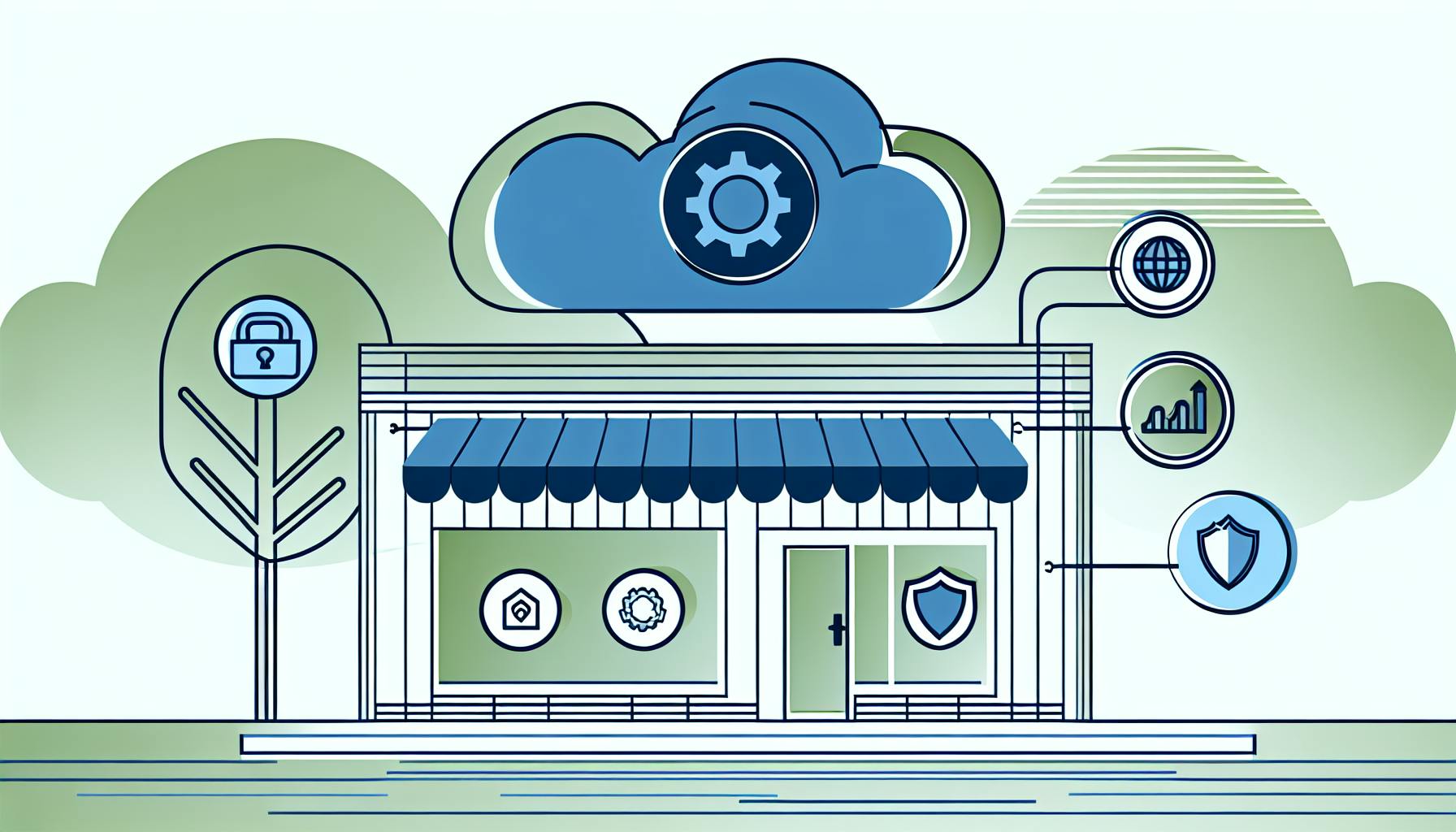Gig workers are individuals who perform short-term, flexible, or freelance work on a project basis. This guide covers the key aspects of gig worker rights, including:
- Understanding the differences between employees and independent contractors
- Rights and protections for gig workers, such as fair pay, anti-discrimination laws, and workplace safety rules
- Unionization and collective bargaining efforts for gig workers
- Portable benefits programs that provide benefits like health insurance and retirement savings
- The future outlook for the gig economy and recommendations for gig workers, businesses, and policymakers
Related video from YouTube
Quick Comparison: Employee vs. Independent Contractor
| Rights and Benefits | Employee | Independent Contractor |
|---|---|---|
| Minimum Wage | Yes | No |
| Overtime Pay | Yes | No |
| Anti-Discrimination | Yes | Limited |
| Workers' Compensation | Yes | No |
| Health Insurance | Yes | No |
The gig economy is rapidly evolving, and it's crucial for all stakeholders to stay informed and work together to ensure fair treatment and protection for gig workers.
Employee or Contractor?
It's crucial to understand if you're an employee or an independent contractor, as this affects your rights and protections. Here's a breakdown:
Worker Types
- Employees work for an employer who controls their schedule, work methods, and output. They are an integral part of the employer's business.
- Independent Contractors are self-employed individuals who offer services to clients. They operate independently and have their own business.
The ABC Test
This test helps determine if a worker is an employee or contractor:
- A: The worker is free from the employer's control in performing the work.
- B: The worker's services are outside the employer's usual business.
- C: The worker has an independently established trade or business.
If a worker meets all three criteria, they are likely an independent contractor. If not, they may be an employee.
The Borello Test
This test considers multiple factors, including:
- The employer's right to control the work
- The worker's opportunity for profit or loss
- The worker's investment in equipment or helpers
- The permanence of the working relationship
- The degree of integration into the employer's business
- The worker's skill and initiative
The Borello test provides a more comprehensive evaluation of the employment relationship.
Misclassification Risks
Misclassifying workers can lead to legal and financial consequences for both employers and workers:
- Employers may face penalties, fines, and back taxes.
- Workers may miss out on benefits, protections, and fair compensation.
It's essential to understand the classification criteria to avoid misclassification and ensure a fair working relationship.
| Worker Type | Key Factors |
|---|---|
| Employee | - Employer controls work schedule, methods, and output - Integral part of employer's business - Financially dependent on employer |
| Independent Contractor | - Operates independently with own business - Offers services to multiple clients - Controls own work methods and schedule |
Rights and Protections
Gig workers face unique challenges regarding their rights and protections. While some laws and rules offer safeguards, others can be unclear or inconsistent. In this section, we'll explore the key rights and protections gig workers should know about.
Fair Pay and Hours
Gig workers are often classified as independent contractors, which means they may not be entitled to the same fair pay and hour protections as employees. However, some states and cities have implemented laws to ensure gig workers receive a minimum wage and overtime pay. For example:
- New York City has established a minimum wage for ride-share drivers.
- Seattle has implemented a minimum pay floor for app-based delivery workers.
Anti-Discrimination Laws
Gig workers may not be protected by federal anti-discrimination laws, such as Title VII, which only applies to employees. However, some states and localities have enacted laws that provide protections against discrimination based on race, gender, age, and other characteristics. For instance, the DC Human Rights Act defines an "employee" as "any individual employed by or seeking employment from an employer," which may include gig workers.
Workplace Safety Rules
Gig workers may not be entitled to the same workplace safety protections as employees. However, some industries, such as construction and transportation, have specific safety regulations that apply to gig workers. Additionally, some companies may have their own safety protocols in place to protect gig workers.
Injury and Disability Benefits
Gig workers are often responsible for their own injury and disability benefits, as they are not entitled to workers' compensation or other employer-provided benefits. However, some states have implemented programs to provide benefits to gig workers who are injured on the job.
Employee vs. Contractor Rights
| Rights and Benefits | Employees | Independent Contractors |
|---|---|---|
| Minimum Wage | Yes | No |
| Overtime Pay | Yes | No |
| Anti-Discrimination | Yes | Limited |
| Workers' Compensation | Yes | No |
| Health Insurance | Yes | No |
Understanding the differences between employee and independent contractor rights is crucial for gig workers. While gig workers may not be entitled to the same protections as employees, they can still advocate for their rights and push for changes to laws and regulations that affect their work.
Unions for Gig Workers
The Challenge of Unionizing
Gig workers often face difficulties when trying to form unions. Many are classified as independent contractors, not employees. This means they may not be protected by labor laws that allow unionizing.
Gig workers are usually spread out, without a shared workplace. This makes it hard for them to meet and organize. Companies also sometimes misclassify workers as contractors to avoid labor rules.
Overcoming Obstacles
To overcome these obstacles, gig workers use social media and grassroots efforts to build support. They also partner with established unions to negotiate with companies.
For example, in Toronto, the Canadian Union of Postal Workers helped Foodora delivery drivers organize and improve their working conditions.
Legal Battles
Recent legal cases have impacted gig worker unionization:
- In 2020, the National Labor Relations Board ruled that Uber drivers are contractors, not employees. This means they cannot unionize under federal labor laws.
- However, some states like California have passed laws allowing gig workers to unionize, despite being contractors.
Success Stories
Despite challenges, some gig workers have successfully unionized:
| Union | Members | Achievements |
|---|---|---|
| Independent Drivers Guild (NYC) | Uber and Lyft drivers | Negotiated better pay and conditions |
| App-Based Drivers Association (Seattle) | Delivery workers | Pushed for higher wages and benefits |
These examples show that with determination and creative strategies, gig workers can improve their working conditions through unionization.
sbb-itb-d1a6c90
Portable Benefits
What are Portable Benefits?
Portable benefits are benefits that move with the worker, not the employer. This means gig workers can take their benefits from job to job. Portable benefits can include:
- Health insurance
- Worker's compensation
- Paid sick days
- Retirement savings
Portable benefits give gig workers security and stability as they change jobs.
Current Programs
Some portable benefits programs already exist for gig workers:
- Portable Benefits for Independent Workers Pilot Program Act: Aims to provide insurance protections typically offered through full-time employment.
- Company Programs: Uber and Lyft have introduced their own portable benefits programs for drivers.
Proposed Programs
Several proposals aim to expand portable benefits for gig workers:
- Shared Security System: A Social Security-like system for all employment benefits, funded through worker pay deductions.
- Gig Worker Benefits Collective: A central hub for gig workers to access health insurance, retirement savings, and disability coverage.
Other Benefit Models
Alternative models for providing gig worker benefits include:
- Worker Funds: Pools of money contributed by workers and employers to provide benefits like health insurance and retirement savings.
- Sectoral Bargaining: Collective bargaining between workers and employers across an entire industry to negotiate benefits for gig workers.
Comparing Portable Benefits Models
| Model | Key Features | Eligibility | Funding Sources | Coverage |
|---|---|---|---|---|
| California Prop 22 | Minimum earnings, health stipend | 15+ hours/week | Companies | Healthcare, job accident coverage |
| Massachusetts Proposal | Minimum earnings, sick leave | 120% minimum wage | Companies | Healthcare, termination protections |
| New York Proposal | Minimum earnings, unionization | All app-based workers | Statewide collaboration | Due process, portable benefits |
| United Kingdom | Minimum wage, paid holidays | Uber drivers | Uber | Pension contributions, holidays |
This table provides an overview of different portable benefits models. It is not a complete list.
Getting Help
Groups That Support Gig Workers
Several groups work to improve conditions and demand fair treatment for gig workers:
- Gig Workers Rising: Organizes protests and campaigns for better working conditions and benefits.
- NDWA Gig Worker Advocates: Negotiates with gig economy companies to improve working conditions and give workers a voice.
- JwJ: Works with other unions and worker centers to address worker exploitation in the gig economy.
These groups unite gig workers, share experiences, and push for change.
Legal Assistance
Gig workers who believe their rights were violated can seek help from lawyers. Attorneys specializing in worker misclassification can guide you through complex employment law cases and advocate for fair treatment. Some options include:
- Misclassification attorneys offering contingency fee services (only paid if you win)
- Independent contractor lawyers providing free, confidential consultations
Filing a Complaint
If your rights were violated, you can file a complaint with the appropriate government agency:
- Gather evidence: Collect documents like contracts, pay stubs, and communication records.
- Choose the right agency: Determine which agency handles your type of complaint (e.g., National Labor Relations Board, Equal Employment Opportunity Commission).
- Fill out the form: Complete the agency's complaint form with all required information and evidence.
- Submit the complaint: File the complaint with the agency online or by mail.
| Agency | Handles |
|---|---|
| National Labor Relations Board (NLRB) | Unfair labor practices, union rights violations |
| Equal Employment Opportunity Commission (EEOC) | Workplace discrimination based on race, gender, age, etc. |
| State labor departments | Wage and hour violations, workplace safety issues |
The Future of Gig Work
Technology's Impact
The gig economy is seeing big changes due to new technologies. AI and automation tools are helping freelancers work faster and offer new services. There is also a rise in demand for specialized skills like cybersecurity and digital marketing, leading to more niche gig platforms. Digital payments and AR/VR technologies are also changing how gig work is done.
Regulatory Changes
Policymakers are taking a closer look at the gig economy. They want to ensure fair wages, benefits, and working conditions for gig workers. Advocacy groups, businesses, and lawmakers are discussing how to address the challenges gig workers face. Tests like the ABC Test and the Borello Test are redefining the line between employees and contractors. Gig workers need to stay informed about these changes.
Future Predictions
Experts predict that more than 50% of the US workforce will be part of the gig economy by 2027. This growth will be driven by remote work, demand for specialized skills, and the use of AI and automation tools. The gig economy is also expected to expand into new industries like healthcare, finance, and education, giving gig workers more opportunities.
Recommendations
To succeed in the future of gig work:
| For Gig Workers | For Businesses | For Policymakers |
|---|---|---|
| - Develop specialized skills | - Invest in AI and automation tools | - Discuss fair wages, benefits, and working conditions |
| - Stay informed about regulatory changes | - Prioritize worker protections | - Ensure gig workers' rights are protected |
| - Prioritize mental health and well-being | - Explore new gig economy platforms | - Engage in ongoing discussions |
Gig workers should develop specialized skills, stay informed about regulatory changes, and prioritize their mental health and well-being. Businesses should invest in AI and automation tools, prioritize worker protections, and explore new gig economy platforms. Policymakers should continue to engage in discussions about fair wages, benefits, and working conditions, ensuring that gig workers' rights are protected in the digital age.
Key Points
Summary
This guide has covered the key aspects of gig worker rights, including:
- The differences between employees and independent contractors
- Rights and protections for gig workers
- Unions and collective bargaining for gig workers
- Portable benefits programs
- The future outlook for the gig economy
It's important for gig workers, businesses, and policymakers to stay informed and work together to ensure fair treatment and protection.
Staying Current
The gig economy is constantly changing, with new technologies, regulations, and innovations emerging regularly. Gig workers, businesses, and policymakers must stay up-to-date on the latest developments and trends to navigate this evolving landscape effectively. This includes:
- Monitoring regulatory changes
- Keeping track of industry news
- Following best practices for compliance and success
Final Advice
To protect and advocate for gig worker rights, education, awareness, and engagement are crucial. Here are some recommendations:
| For Gig Workers | For Businesses | For Policymakers |
|---|---|---|
| - Develop specialized skills | - Invest in AI and automation tools | - Discuss fair wages, benefits, and working conditions |
| - Stay informed about regulatory changes | - Prioritize worker protections | - Ensure gig workers' rights are protected |
| - Prioritize mental health and well-being | - Explore new gig economy platforms | - Engage in ongoing discussions |


